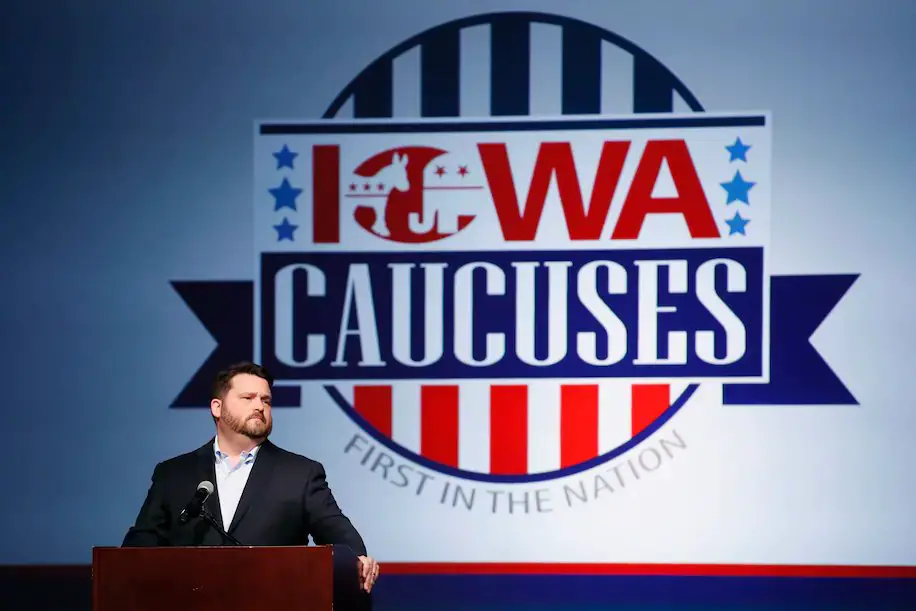As with most things within the modern Democratic Party, making moves based solely on skin color is the most expedient and important consideration of the day. With the upcoming 2024 Democratic primary looming, since it’s unlikely Biden will run for a second term, the clamoring to reorder the nominating calendar is again reaching a fever pitch.
The Iowa Caucuses, made famous by Jimmy Carter as a candidate back in January of 1976, have been a mainstay of American politics for over four decades now. The Hawkeye State’s time, however, at least as a kingmaker of Democratic Party politics, may be closing soon.
Iowa is too white and too rural, apparently, to properly connect with the diversity of today’s Democratic Party. Nevermind Barack Obama’s victory there in 2008 on his way to become the first African-American President, that doesn’t count.
Instead, party insiders say, Iowa’s time at the front of the pack needs to end in favor of a more “diverse” state:
Today, Iowa’s status as the first-in-the-nation presidential battleground for Democrats is in jeopardy as party officials appear increasingly resolved to open the 2024 presidential campaign elsewhere. No decision has been made, but a leaked draft proposal calls for putting states with primaries and a diverse electorate at the front of the calendar. Republicans look content to continue opening their presidential primary season in the Hawkeye State, according to the Washington Examiner.
For Democrats, “Iowa is a target for a variety of reasons,” Dan Balz wrote in The Washington Post. “Its population is largely White and therefore does not reflect the party’s diversity. It is seen as largely rural in makeup, at a time when the party’s voters are housed increasingly in cities and populous suburbs. Its contest is a set of caucuses, an arcane system whose rules few understand and that disenfranchises voters.”
Few people would argue that the caucus system is efficient and/or optimal with regard to encouraging wide participation. The process is time-consuming which means voters with children who need a babysitter to give up several hours in the evening will be disinclined to join the festivities. The caucus system does serve a purpose, however, as it requires interaction and face-to-face discussion of the candidates. This kind of more intimate setting involves speeches in favor or against candidates and debates among caucusgoers rather than walking in the door and checking a box.
Still, the broader point here, according to the Democratic Party, is that people of Iowa are simply “too white,” which is code for “too racist” to be the lead-off event that sets the course for a national nomination.
The less offensive truth about Iowa is that in recent elections, such as 2020, the Democratic caucus winner did not go on to become the nominee:
In 2020, Pete Buttigieg and Sen. Bernie Sanders nearly tied for first place in Iowa, while Joe Biden, the eventual Democratic nominee, finished fourth.
The legacy of Carter’s 1976 Iowa victory lives on, even if the caucuses lose their first-in-the-nation status on the Democratic primary calendar. “The kind of politics that worked for Carter in 1976 now has an impact en masse throughout the country,” Zelizer wrote. “Today, every candidate lives in the world that Carter helped to create that January in Iowa.”
Perhaps it would be better if Democrats argued that since more campaigning is done electronically now, times have changed, and the retail politics of the Iowa State Fair soapbox don’t mean as much anymore.
Instead, it’s stunning to see a party that is finding it already impossible to connect with rural voters flat out say that those voters, largely white, are simply incapable of sitting in the front of the line for reasons of diversity.
However, the modern Democratic Party seems willing to lose elections and continue alienating voters in the name of social justice. As long as they can keep winning the coasts, or urban areas where unethical ballot harvesting gives them an edge, they’re fine losing Iowa and the rest of the heartland.
Donate Now to Support Election Central
- Help defend independent journalism
- Directly support this website and our efforts
